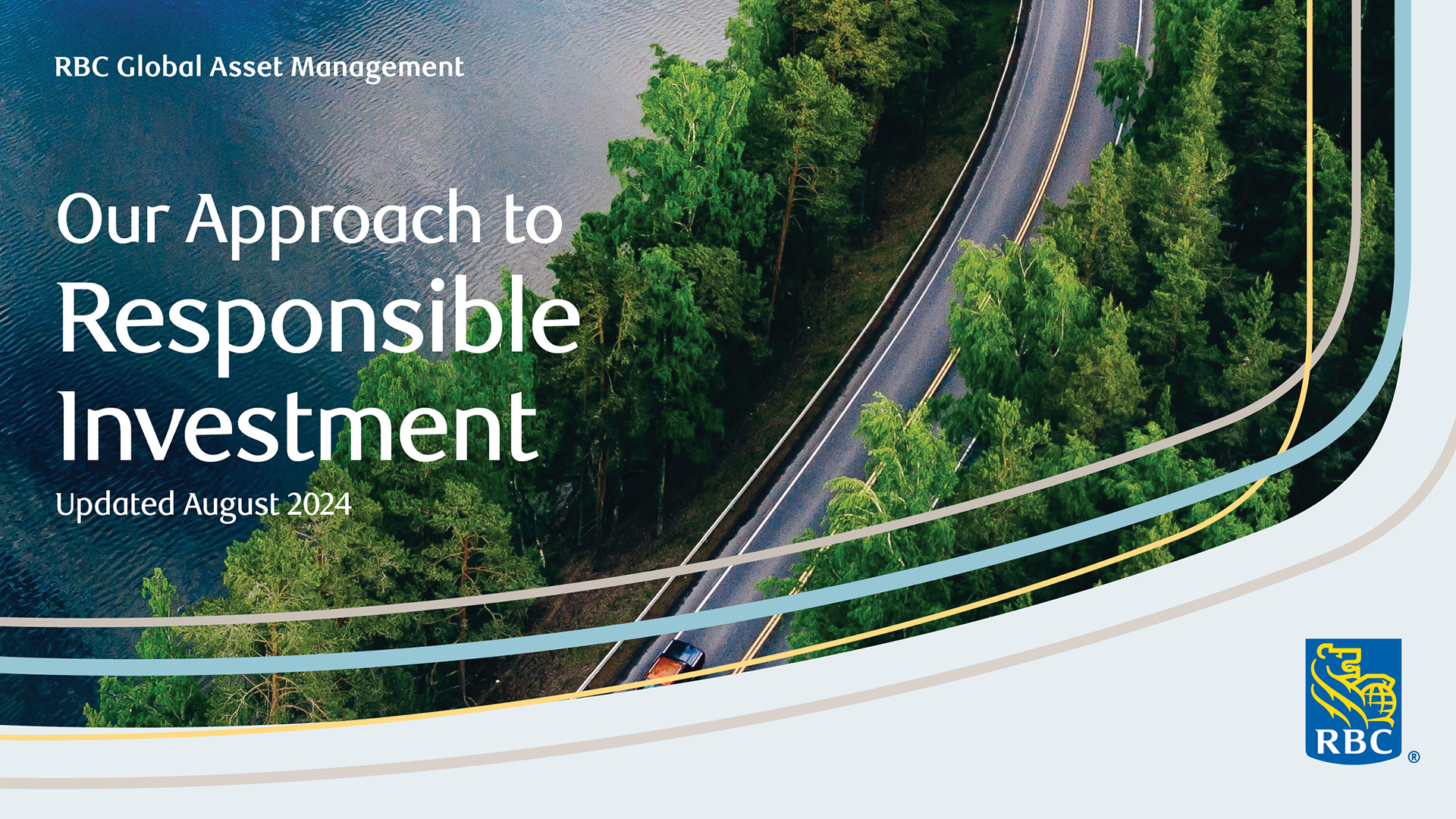Our approach to responsible investment
At RBC Global Asset Management (RBC GAM), our approach to responsible investment (RI) is anchored by the knowledge that our clients have entrusted us to help them secure a better financial future for themselves or for the beneficiaries of the portfolios they manage. We believe that being an active, engaged, and responsible investor empowers us to enhance the risk-adjusted, long-term performance of our portfolios.

Our approach to climate change
We believe that climate- and nature-related factors are systemic risks that may materially affect issuers and the economies, markets, and societies in which they operate. We recognize the importance of the global goal of achieving net-zero emissions by 2050 or sooner, in order to mitigate climate-related risks.1
Read the RBC GAM Climate Report 2024
We take specific actions under each of these three pillars to deliver on our aim of maximizing our clients' investment returns without undue risk of loss, in accordance with the investment objectives, strategies, and restrictions of each investment mandate.
ESG integration
Our investment teams incorporate material environmental, social and governance (ESG) factors into their investment decisions for applicable types of investments.
Active stewardship
We consider material ESG factors in proxy voting and engagement with issuers for applicable types of investments. We may also participate in RI industry initiatives, where applicable.
Client-driven solutions and reporting
We aim to align our solutions with client demand and provide transparent and meaningful reporting.
Our investment teams consider material ESG factors when making investment-related decisions within the portfolios they manage, for applicable types of investments, with an aim to identify potential material risks and opportunities and improve risk-adjusted, long-term performance. Examples of ESG factors that may be material include the following.
Environmental
- Air and water pollution
- Biodiversity
- Climate change
- Ecosystem integrity
- Natural resource management and use
- Waste management
- Water quality and availability
Social
- Community relations
- Data privacy and security
- Employee engagement
- Gender and diversity
- Health and safety
- Human rights
- Indigenous rights
- Labour practices
Governance
- Board structure and independence
- Bribery and corruption
- Executive compensation
- Lobbying and political contributions
- Shareholder rights
- Tax strategy and accounting standards
Activity disclosures, research and insights
Providing responsible investment solutions
While many of our products incorporate responsible investment through ESG integration, we also offer funds that apply ESG screening and exclusion based on a defined set of ESG-related criteria.
ESG integration
Ongoing incorporation of material ESG factors into investment decision making with an aim to identify potential risks and opportunities and improve risk-adjusted, long-term returns.
Talk to your advisor about ESG-related investment products.
ESG screening and thematic ESG investing
ESG screening and exclusion apply positive or negative screens to include/exclude assets from the investment universe. Thematic ESG investing focuses on investing in assets involved in a particular ESG-related theme or seeking to address a specific ESG issue.
Learn more about our Responsible Investment team
